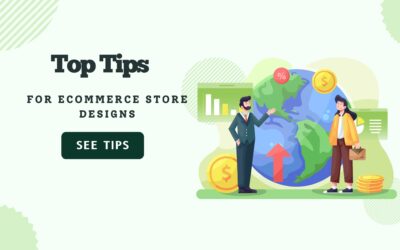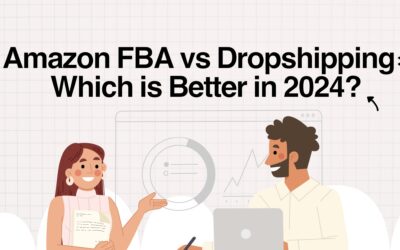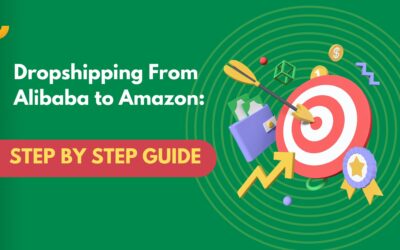From Cart to Conversion: Best Wholesaling Software for Modern Ecommerce
In a digital age where every click counts, the right tools can be the game-changer your ecommerce venture needs. Remember when a simple Excel sheet was all you needed to keep track of your inventory? Those days are long gone. Enter the dynamic world of wholesaling software — the unsung hero powering most successful online stores you marvel at.
Have you ever wondered why giants like Amazon always stay in stock or have seamless transactions? A lot of that magic happens thanks to sophisticated wholesaling software.
Today, I’ll pull back the curtain on this revolution, giving you a sneak peek into the heart of modern ecommerce.
What is Wholesale Distribution Software?
Wholesale distribution software is a specialized system that assists businesses in managing and optimizing their bulk sales, inventory, customer relationships, and more. Picture it as the behind-the-scenes maestro orchestrating the flow of products from suppliers to retailers or directly to consumers in larger quantities.
When businesses transition from brick-and-mortar wholesale business to digital. The difference software makes can be astronomical. Tasks that would take hours, if not days — like inventory management, order processing, and customer relations — can be streamlined into mere minutes. It’s the kind of transformation that underpins the digital age of selling.
In ecommerce, where the competition is fierce and margins are razor-thin, efficiency is everything. That’s where wholesale distribution software shines. It automates mundane tasks and provides insights, analytics, and tools to help businesses grow, adapt, and flourish in a fast-paced environment.
Differentiating between Wholesale Distribution Software and Wholesale Ecommerce Platforms:
Now, you might think, “Isn’t that the same as a wholesale ecommerce platform?” Not quite. While they might seem similar at first glance, there’s a distinction.
- Wholesale Distribution Software: Focuses primarily on the internal operations of a business. It’s about managing product flows, inventories, supplier relationships, and customer data. Think of it as the central nervous system of a wholesaling operation.
- Wholesale Ecommerce Platforms: These are outward-facing. They’re designed to create an online storefront for wholesale businesses, making it easy for buyers to browse, select, and purchase goods. Platforms like WooCommerce or Shopify, which you might have encountered, are built to provide an interface between the seller and the buyer.
In simpler terms, while wholesale distribution software is the backstage crew ensuring everything runs smoothly, wholesale ecommerce platforms are the front-stage performers, interacting directly with the audience.
In my journey assisting newbies in the ecommerce arena, understanding this difference was crucial. It’s like distinguishing between the engine and the body of a car. Both essential, both different in function, yet working in harmony to deliver a smooth ride.
Why Wholesaling Software is Essential for Ecommerce
In the bustling streets of the digital marketplace, standing out and ensuring smooth operations can be a daunting challenge. Enter wholesaling software. Often hailed as the unsung hero of modern ecommerce, this tool offers solutions that go beyond basic selling. Let’s dive deep into why it’s become an indispensable part of the ecommerce toolkit.
Increasing Sales While Reducing Expenditure:
In the early days of my venture into e-commerce, I realized that driving sales wasn’t just about attracting more customers; it was also about optimizing every little process to ensure money wasn’t unnoticed. That’s where wholesaling software came to the rescue.
- Automated Processes: Software minimizes manual errors and speeds up operations by automating various tasks, such as inventory management and order processing. This means you can handle more orders in less time, leading to more sales.
- Data-Driven Insights: Most wholesaling software provides analytics that help businesses understand sales trends, customer preferences, and more. Armed with this information, you can tailor your strategies to what truly works, ensuring a better ROI.
Simplifying the Buying Process for B2B Customers:
When you’re dealing with B2B customers, remember: they’re not just buying for themselves. They’re sourcing products for an entire business. The stakes are higher, and so are their expectations.
- Bulk Order Features: Wholesaling software often has features tailored for bulk orders. This can include unique pricing tiers, easy reorder functionalities, and detailed product catalogs.
- Personalized Buying Experiences: I once consulted for a B2B business struggling with their online sales. With the right wholesaling software, we could offer customized product recommendations based on past purchases, making the buying process smoother for repeat customers.
Making Your Business Location-Independent:
One of the most liberating moments in my ecommerce journey was realizing that I wasn’t tied down to any specific location. Wholesaling software has played a significant role in this.
- Cloud-Based Operations: Many modern wholesaling tools are cloud-based, meaning you can access your business data, manage operations, and make crucial decisions anywhere in the world.
- Global Reach: With the right tools, you can easily manage international orders, handle different currencies, and navigate global shipping logistics. It’s like having a passport that allows your business to travel and reach corners of the market you’d never thought possible.
Think of wholesaling software as your sturdy, reliable ship, expertly designed to navigate the waves and get you to your destination. It’s not just about selling products; it’s about selling smarter, faster, and more efficiently.
Key Features To Look For
Navigating the myriad of software options on the market can feel like finding a needle in a haystack. It’s easy to get overwhelmed. But fear not, for I’m here to guide you through the maze. Drawing from my years in the ecommerce industry and countless consultations, I’ve pinpointed the essential features that truly matter.
Design: The Power of UI/UX:
Believe it or not, the way your software looks and feels plays a monumental role in its effectiveness.
- User Experience (UX): Remember the last time you used an app or software and felt completely lost? A seamless user experience ensures that every feature is intuitive, minimizing the learning curve and making operations swift.
- User Interface (UI): A visually appealing interface isn’t just for show. It enhances user engagement, ensuring you and your team enjoy using the software.
Price: The Real Value for Money:
The most expensive option isn’t always the best, nor is the cheapest always the most cost-effective.
- Initial Costs vs. Long-term Value: During my early days, I learned that skimping on upfront costs can lead to higher expenses in the long run. Look for software that provides a good balance between initial pricing and the features it offers.
- Scalability: As your business grows, so will your needs. Opt for software that offers scalable pricing plans, allowing you to upgrade as your operations expand.
Integrations: Playing Well with Others:
No software is an island. It needs to communicate and collaborate with other tools and platforms you use.
- Ecosystem Compatibility: Whether you’re using Shopify, WooCommerce, or any other platform, your wholesaling software should effortlessly integrate, ensuring data consistency and streamlined processes.
- API Access: For the tech-savvy, having API access means you can create custom integrations, further tailoring the software to your unique needs.
Inventory Management Functionality:
In the world of ecommerce, inventory is king. Managing it efficiently is paramount.
- Real-time Tracking: This feature ensures you always know how much stock you have, preventing over-selling and understocking situations.
- Automated Reordering: Some advanced tools can predict when you’re about to run out of stock and place reorders, making sure your operations never hit a snag.
Flexibility: One Size Doesn’t Fit All:
Every business is unique, and your software should respect that.
- Customization: From generating specific reports to adjusting the workflow, a flexible software lets you mold it according to your business model.
- Platform Independence: The best tools work across devices and platforms, letting you manage your operations whether you’re on a PC, tablet, or smartphone.
Customer Categories: Know Your Audience:
Just as a good salesman tailors their pitch, your software should cater to various buyer personas.
- Segmentation: Categorize your customers based on their purchasing behavior, preferences, or any other criteria, ensuring they get a tailored shopping experience.
- Personalized Marketing: With clear customer categories in place, you can create targeted marketing campaigns, enhancing conversions and customer loyalty.
In my years in ecommerce, I’ve realized that the right software isn’t just about flashy features; it’s about features that genuinely streamline, enhance, and empower your operations. So, as you sift through options, keep these pointers in mind and you’ll find your perfect match in no time.
Best Wholesaling Software Recommendations
When entering the ecommerce industry, the sheer volume of software choices can feel like a minefield. But having personally ventured into the depths of this industry and come out the other side, I’ve identified the gems among the stones. Let me guide you through some of the top wholesaling software options, detailing their merits and what they can bring to your business.
QuickBooks Commerce:
Overview: From the esteemed family of Intuit, QuickBooks Commerce is not just about accounting. It’s a comprehensive inventory and order management software designed especially for multichannel brands, wholesalers, and ecommerce businesses.
Benefits:
- Multichannel Syncing: Manage sales, inventory, and customer data across multiple channels from one centralized platform.
- In-depth Analytics: Make data-driven decisions with its detailed insights on sales, inventory, and customer trends.
- Integration Prowess: Seamlessly integrates with popular ecommerce platforms and marketplaces.
NetSuite:
Overview: Powered by Oracle, NetSuite is a robust cloud ERP solution that streamlines business processes and scales with growth.
Benefits:
- Unified Business Management: From financials and CRM to ecommerce, all are bundled into one integrated suite.
- Global Business Ready: Multi-language, multi-currency, multi-tax, and multi-entity capabilities.
- Real-time Visibility: Immediate access to core business performance indicators for informed decision-making.
SYSPRO ERP:
Overview: SYSPRO ERP positions itself as a software that simplifies the complexities of managing an end-to-end supply chain.
Benefits:
- Customizable Interface: Tailor the software’s interface to meet individual and role-specific needs.
- Deep Analytics: Advanced reporting tools offer actionable insights.
- Integrated AI: Incorporates Artificial Intelligence for predictive analytics and enhanced efficiency.
BlueCart:
Overview: Catering primarily to the food industry, BlueCart is a B2B order management solution that bridges suppliers with buyers.
Benefits:
- Order Optimization: Streamlines the ordering process, reducing errors and saving time.
- Inventory Management: Real-time monitoring ensures you’re always stocked and never over-ordered.
- Digital Payment Processing: Simplifies the payment process, enhancing the buyer’s experience.
Wholesale Suite:
Overview: Specially designed for WordPress, this suite offers a range of plugins to enhance your WooCommerce wholesale operations.
Benefits:
- Flexible Pricing: Set prices for different user roles or individual customers.
- Order Minimums: Establish minimum order quantities or values for wholesale orders.
- Quick Order Forms: Streamlined forms ensure bulk order placements are a breeze.
Acumatica:
Overview: A cloud and browser-based ERP solution, Acumatica is tailored for growing small and mid-sized businesses.
Benefits:
- Real-time Data: Access your business metrics anytime, anywhere.
- Unlimited Users: Unlike traditional ERP systems, Acumatica charges for the computing resources used, not per user.
- Scalability: Modules range from finance to CRM, making it a one-stop solution.
JD Edwards EnterpriseOne:
Overview: Another feather in Oracle’s cap, JD Edwards EnterpriseOne provides an integrated suite of comprehensive ERP applications.
Benefits:
- Diverse Capabilities: Modules span across finance, project management, order management, and more.
- Mobile Solutions: Provides real-time data to a mobile workforce, enhancing decision-making on the go.
- AI-Driven Automation: Infused with machine learning for more intelligent processes.
Best Wholesale Ecommerce Platforms
Being in the thick of things, you will quickly find the ecommerce platform you subscribe to plays a pivotal role in navigating the treacherous waters of the online marketplace. I’ve tried many and have some top picks for you.
Magento/Adobe Commerce:
Overview: Initially an independent powerhouse and now under Adobe’s umbrella, Magento is a behemoth in the ecommerce world, known for its limitless customization.
Benefits:
- Open Source Flexibility: Build a store precisely how you envision.
- Scalability: Ideal for both SMEs and large enterprises.
- Vast Extension Marketplace: Amplify functionality with myriad plugins.
WooCommerce:
Overview: The beloved WordPress plugin, WooCommerce, powers a significant chunk of online stores, offering simplicity and power.
Benefits:
- WordPress Integration: Perfect for those already familiar with the platform.
- Extensive Plugins: Enhance functionality with ease.
- Cost-effective: Many features are freely available.
Shopify:
Overview: Shopify’s reputation precedes itself. As an all-in-one solution, it’s won the hearts of many entrepreneurs globally.
Benefits:
- User-Friendly Interface: Start selling with minimal tech know-how.
- Integrated Payment Solutions: Shopify Payments simplifies transactions.
- Robust App Ecosystem: Expand your store’s capabilities.
BigCommerce B2B Edition:
Overview: BigCommerce’s B2B edition tailors the ecommerce experience for wholesalers, marrying B2B complexity with B2C simplicity.
Benefits:
- Custom Price Lists: Offer tailored pricing for different customer segments.
- Bulk Order Processing: Simplify large volume transactions.
- Robust SEO Tools: Get ahead in search rankings.
PrestaShop:
Overview: An open-source solution, PrestaShop gives businesses the tools to craft a customized online store from the ground up.
Benefits:
- Flexible Customization: Tailor your store to your brand’s look and feel.
- Active Community: Benefit from the insights of a vast community.
- Multilingual: Operate seamlessly in various languages.
Netsuite SuiteCommerce:
Overview: Netsuite SuiteCommerce delivers a unified, cloud-based commerce platform that integrates with Netsuite’s ERP and CRM solutions.
Benefits:
- Single Data Source: Avoid data silos and ensure consistency.
- Personalized Shopping Experiences: Tailor the buying experience for different customer segments.
- B2B and B2C on a Single Platform: Navigate both sectors seamlessly.
Xcart:
Overview: Xcart, an open-source shopping cart solution, promises a combination of performance, security, and flexibility.
Benefits:
- Adaptable Design Templates: Create a visually appealing store.
- Inbuilt SEO Tools: Boost your store’s visibility.
- PCI-DSS Level 1 Certified: Ensure top-tier security.
Shift4Shop / 3DCart:
Overview: Previously known as 3DCart, Shift4Shop offers a feature-rich platform tailored for businesses of all sizes.
Benefits:
- Diverse Payment Gateways: Over 200+ integrated options.
- mobile-Optimized: Cater to an increasing mobile user base.
- Advanced Marketing Tools: Drive growth and customer engagement.
Choosing the right ecommerce platform can make or break your online venture. Each platform offers its unique flavors and strengths. It’s all about aligning those with your brand’s aspirations and operational needs. Reflect on your business model, consider your growth ambitions, and then set sail on the platform that seems like the wind beneath your wings.
FAQs
What is wholesaling distribution?
Wholesaleing distribution is the act of selling goods in bulk or large quantities to retailers, who then sell these products to the end consumers. It’s a pivotal supply chain link, as the bridge between manufacturers or producers and the retail outlets. The focus here is on volume, with wholesalers usually benefiting from discounted rates due to the bulk purchases.
How can one start a wholesale business online?
Launching an online wholesale business can be distilled into a few essential steps:
- Research and Select a Niche: Identify what products resonate with you and have a promising market demand.
- Source Products: Build relationships with manufacturers or producers. Ensure quality and reliability.
- Choose the Right Ecommerce Platform: Platforms like Shopify, WooCommerce, or Magento are tailored for wholesaling needs.
- Develop a Pricing Strategy: Understand your costs and desired profit margins.
- Market Your Business: Utilize digital marketing techniques like SEO, PPC, and email campaigns to attract retailers.
What are the core features of a wholesale management system?
A wholesale management system should ideally cover the following:
- Inventory Management: Track stock levels in real-time.
- Order Processing: Facilitate seamless bulk orders and returns.
- Customer Management: Store and manage retailer data.
- Pricing and Discounts: Customize pricing structures for different retailers.
- Reporting and Analytics: Gain insights into sales, best-performing products, and retailer behavior.
How do B2B ecommerce platforms support wholesalers?
B2B ecommerce platforms are tailored to address the unique challenges faced by wholesalers. They offer:
- Bulk Ordering Features: Simplify the process of large volume transactions.
- Custom Pricing Structures: Provide different price points or discounts for varied retailer categories.
- Advanced Search Features: Allow retailers to find and reorder products quickly.
- Integration Capabilities: Seamlessly connect with other business systems like ERP or CRM.
- Mobile Optimization: Cater to the rising trend of mobile B2B shopping.
Final Thoughts
In my own journey, aiding countless entrepreneurs and businesses, I’ve seen firsthand the transformative power of the right software. It’s not just about automating tasks; it’s about elevating your entire business model, making it more efficient, more responsive, and more attuned to the needs of the ever-evolving market.
In any e-commerce store, these tools aren’t just luxuries—they’re necessities. And with the right one in your arsenal, the sky’s the limit for your business’s potential.
Tips for Best Ecommerce Store Designs in 2024
Tips for Best Ecommerce Store Designs in 2024 As we progress through 2024, ecommerce store...
Amazon FBA vs Dropshipping: Which is Better in 2024?
Amazon FBA vs Dropshipping: Which is Better in 2024?Amazon FBA vs Dropshipping? Choosing between...
Dropshipping From Alibaba to Amazon: Step-by-Step Expert Guide for 2024
Dropshipping From Alibaba to Amazon: Step-by-Step Expert Guide for 2024Starting dropshipping from...







